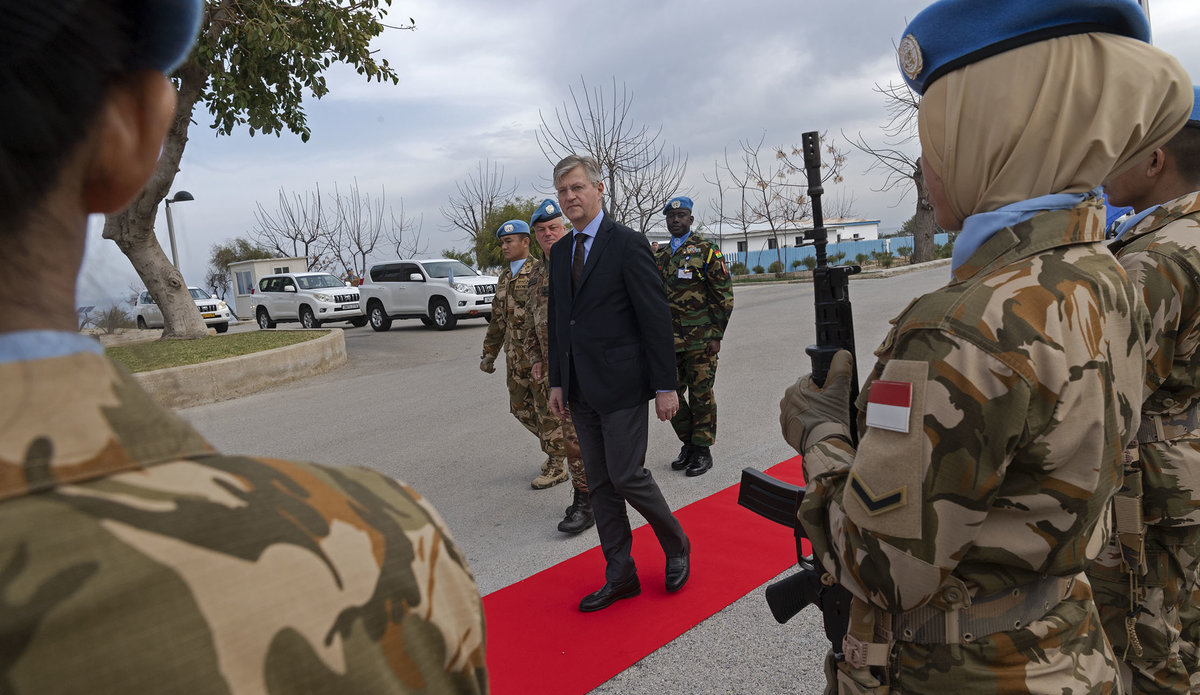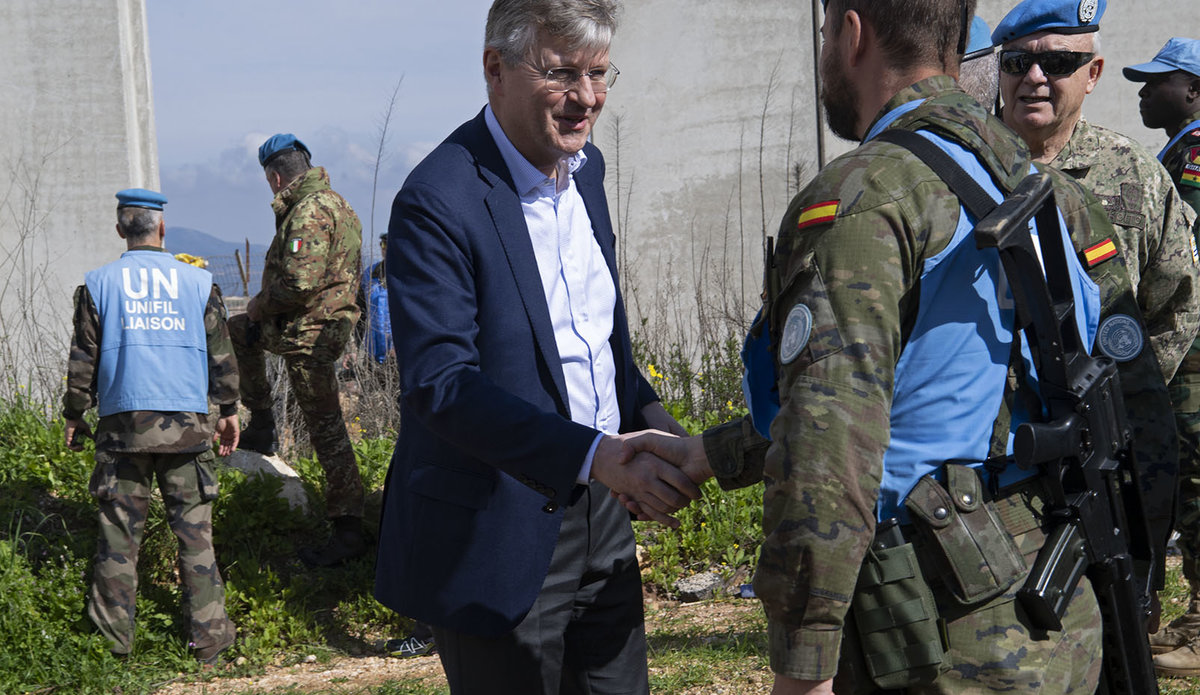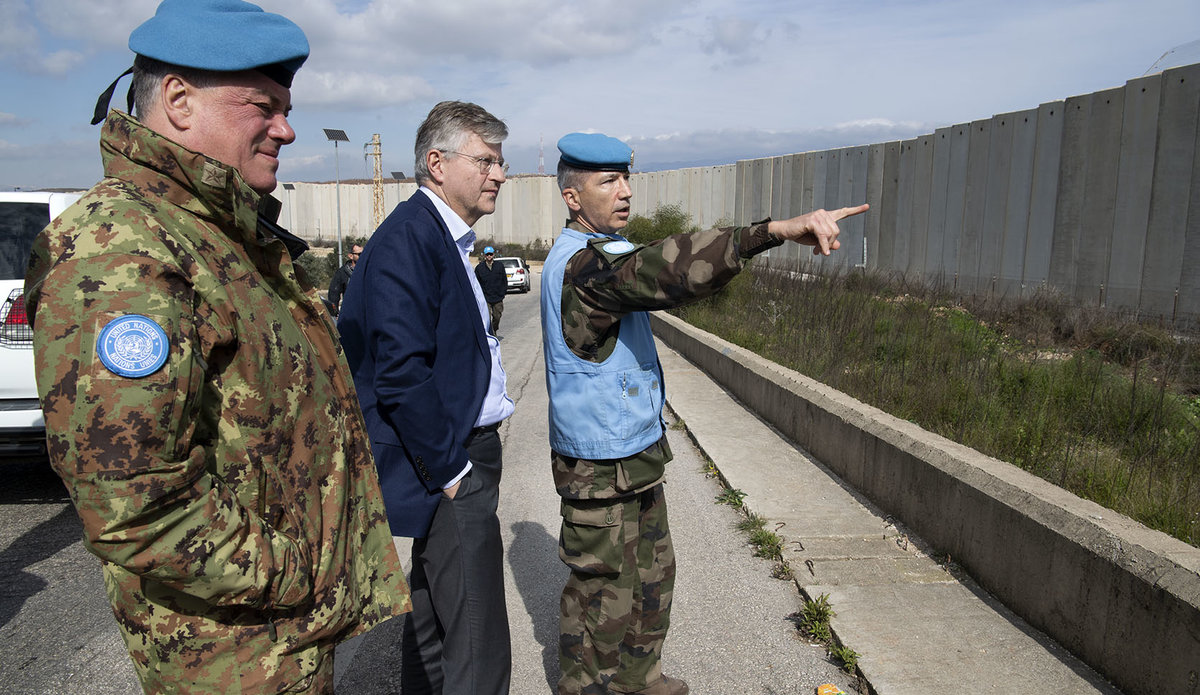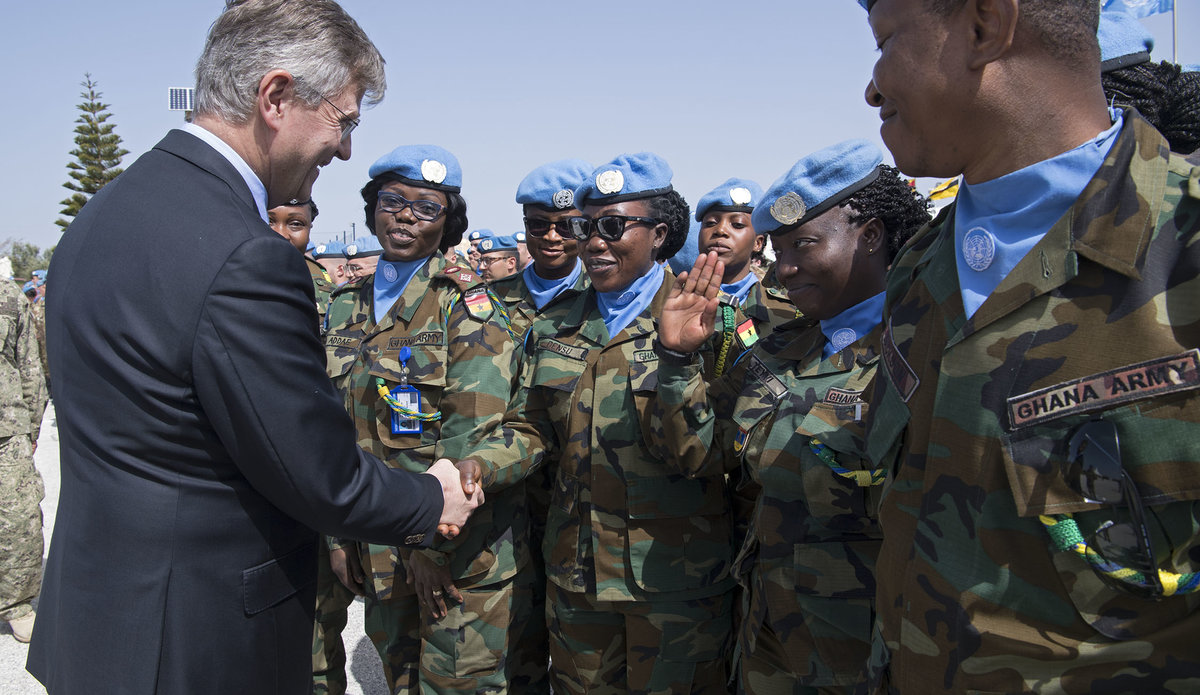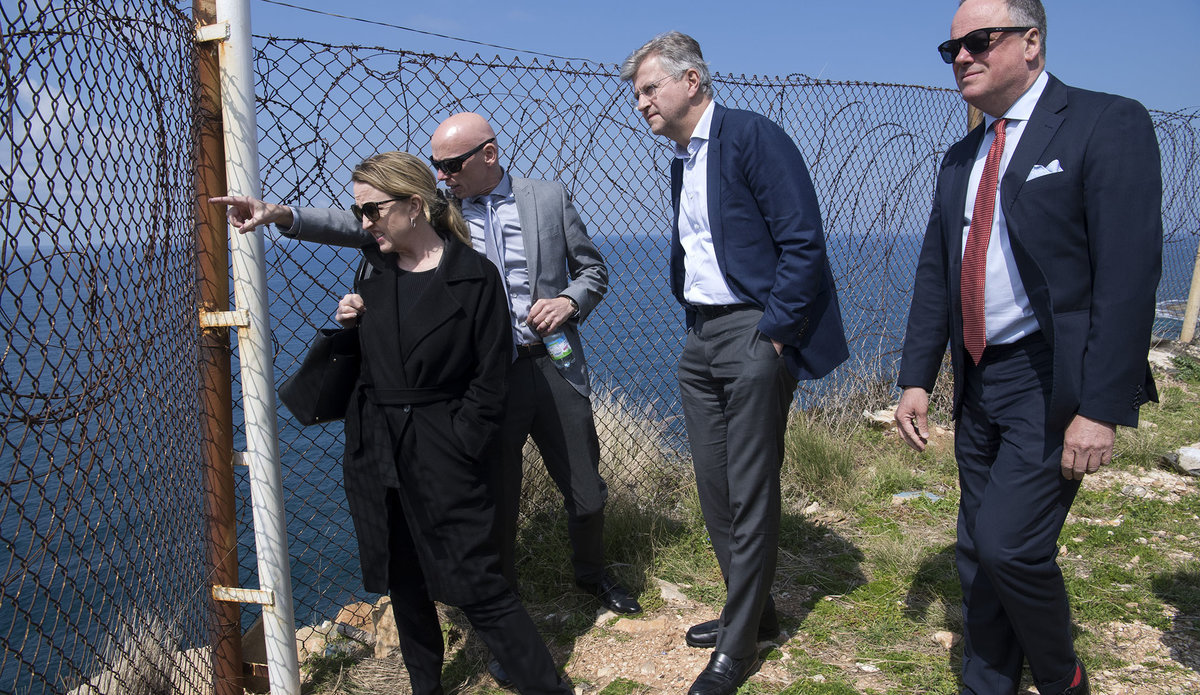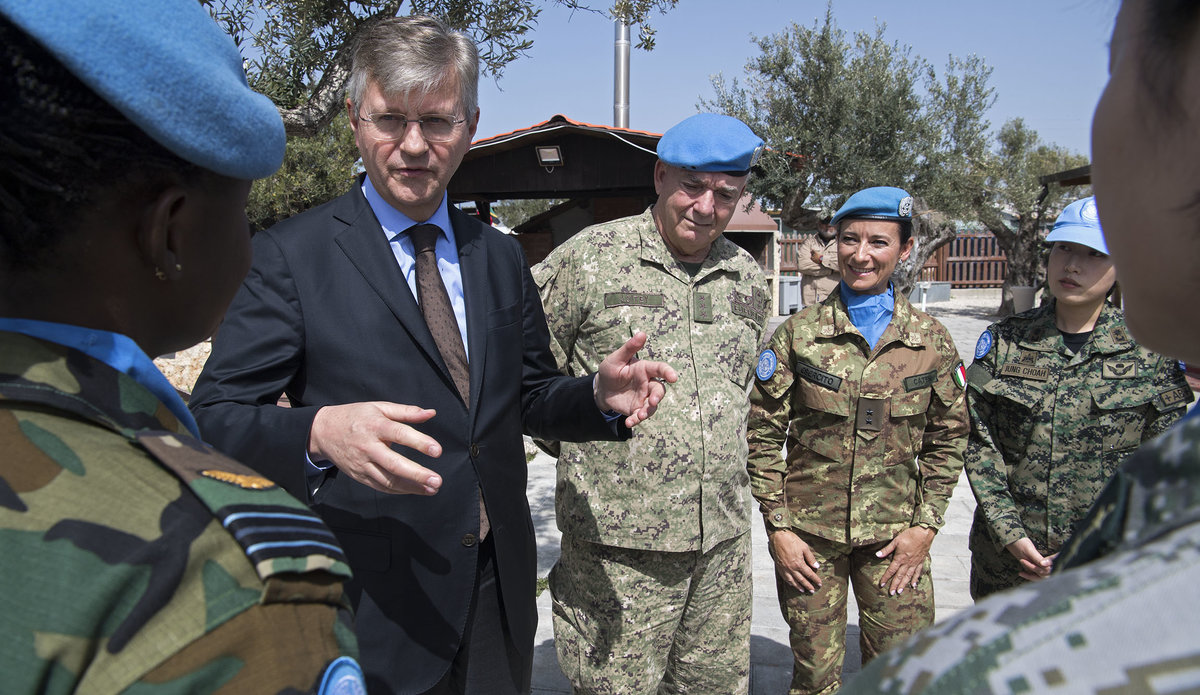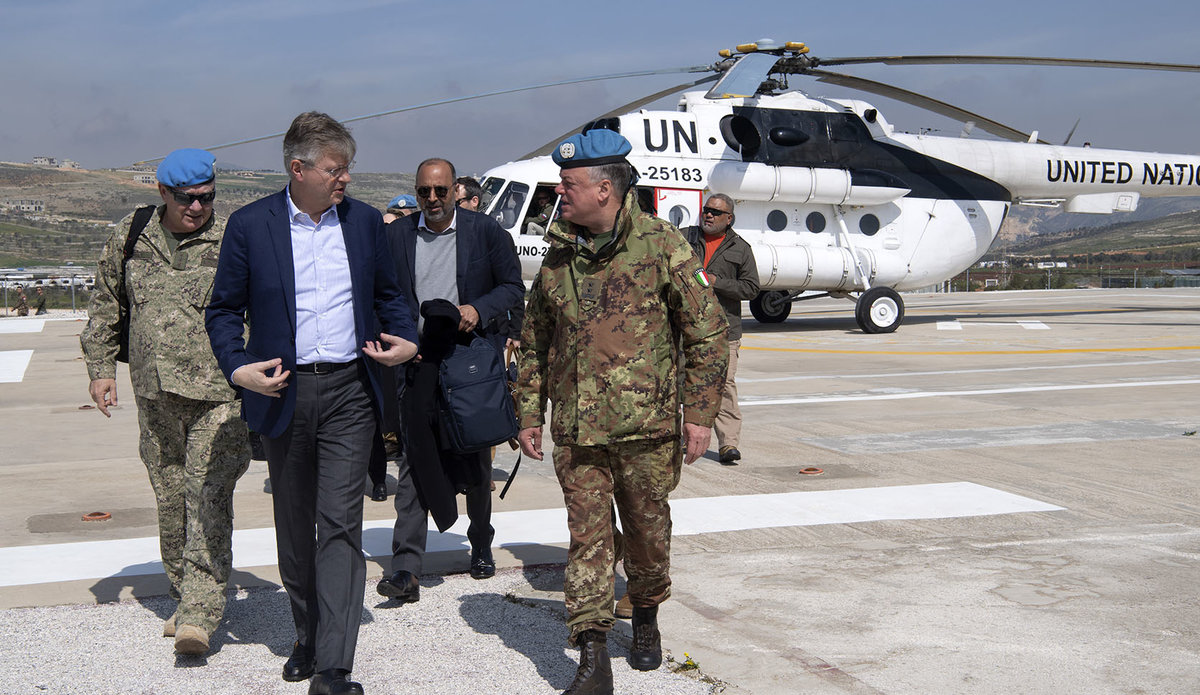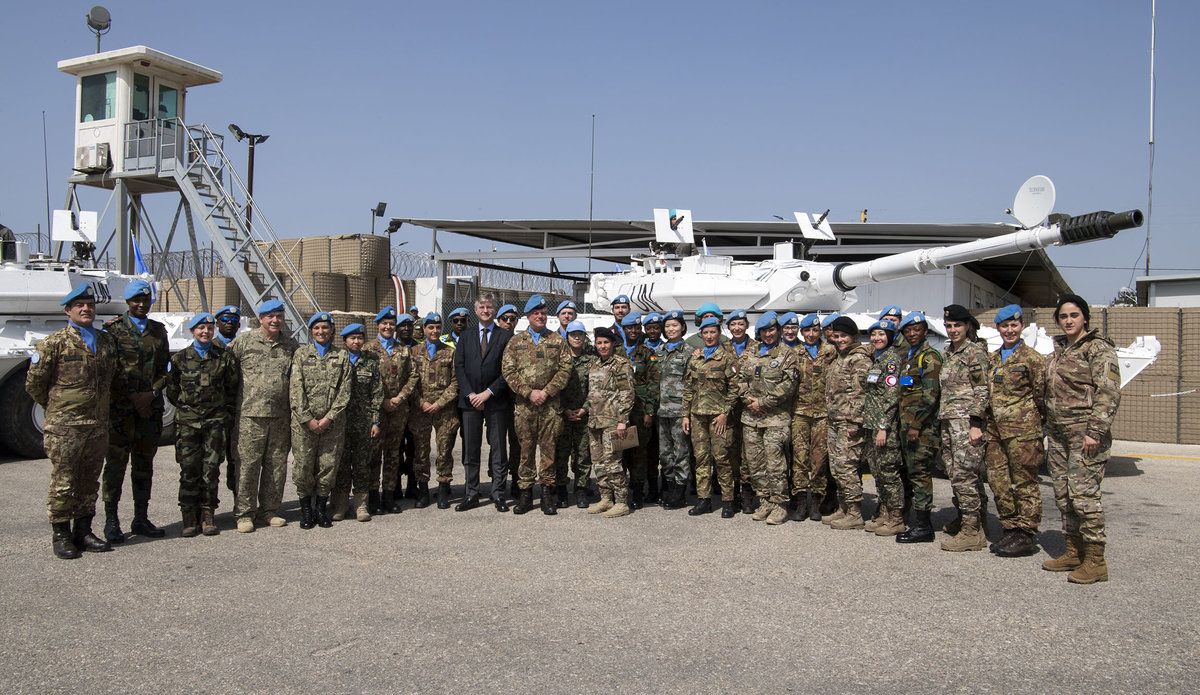UN Peacekeeping chief concludes Lebanon visit
The United Nations Under Secretary-General for Peace Operations, Jean-Pierre Lacroix, yesterday concluded his 5-day visit to Lebanon, where he held talks with top Lebanese officials in the capital, Beirut, and saw first-hand the crucial work of UNIFIL peacekeepers in the southern part of the country.
During talks with President Michel Aoun, Speaker Nabih Berri, Prime Minister Saad Hariri, Minister of Foreign Affairs Gebran Bassil, Minister of Defense Elias Bou Saab, Lebanese Armed Forces (LAF) Commander General Joseph Aoun and head of General Security Abbas Ibrahim, Mr. Lacroix underlined the importance of the Lebanese Government’s continued cooperation with UNIFIL in maintaining calm in south Lebanon and ensuring implementation of UN Security Council Resolution 1701, which forms the core of UNIFIL’s mandate.
“With the new national unity government in place in Beirut, we hope to see the further strengthening of the LAF, including its reinforced presence in the south working alongside UNIFIL peacekeepers, as well as the strengthening of Lebanon’s naval capabilities,” said Mr. Lacroix before wrapping up his visit. “The consolidation of LAF-UNIFIL cooperation is vital in building on the nearly 13 years of stability and in moving forward to a permanent ceasefire as envisaged in the resolution 1701.”
UNIFIL is mandated to support the LAF and help enhancing its capacities, including by supporting the deployment of the LAF in South Lebanon. Since October 2006, the Mission’s Maritime Task Force also continues to assist the Lebanese Navy in securing the country’s territorial waters and raising its capabilities.
During meetings with Lebanese leaders and interactions with UNIFIL peacekeepers, Mr Lacroix underlined UNIFIL’s strong preventive role through its actions on the ground and its tripartite, liaison and coordination arrangements.
“UNIFIL will continue to do its utmost to support efforts towards a permanent ceasefire and long-term solution to the conflict,” he said. “A peacekeeping operation is a tool to enable diplomatic efforts towards a political solution; it cannot be a substitute for a political solution.”
Throughout his interactions with Lebanese interlocutors, Mr. Lacroix highlighted the importance of ensuring UNIFIL’s freedom of movement, allowing it to carry out its work independently and in an impartial manner, within its area of operation in south Lebanon.
During his visit, Mr. Lacroix also toured key hotspots along the Blue Line and interacted with peacekeepers on the ground, including women peacekeepers, whose work is essential to build a relation of confidence with the population. He also addressed UNIFIL military and civilian staff in a town hall meeting in the Mission headquarters in Naqoura.
 UN
UN United Nations Peacekeeping
United Nations Peacekeeping
